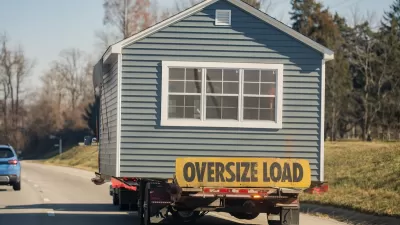Big, diverse, and a little bit different, the Millennial generation is often cast as the solution to—or the cause of—many of America’s housing challenges.

By Lisa Sturtevant
Big, diverse, and a little bit different, the Millennial generation is often cast as the solution to—or the cause of—many of America’s housing challenges. But Millennials probably aren’t as principal to understanding U.S. housing market conditions as the sheer amount of media coverage may lead us to believe.
The opportunities available to Gen Xers and Baby Boomers, and the decisions they make about where to live, are also key rungs in the housing market ladder. But there is a mystique about Millennials in the midst of sluggish economic conditions which, among other less fanciful reasons, makes them an important part of the conversation about the housing market recovery and the role of housing in people’s lives. But can we separate Millennial fact from myth? And are markets and policy set up to adequately meet Millennials’ housing needs?
Who Are Millennials?
There is no universal definition of the Millennial population, though researchers and commentators often refer to the population of people in their late teens to early 30s as Millennials. There are about 75 million people age 18 to 34, making up nearly a quarter of the overall population. Millennials comprise a larger group of the population than Baby Boomers and they are more racially and ethnically diverse than older age cohorts.
The population of young adults has been graduating from school and entering the labor force (or not) in the sluggish recovery of the worst recession in 75 years. They face limited employment options, stagnant wages and high student debt.
They are also entering the stage of life when people typically start families and think about buying a home. But, they aren’t.
What Do We Hear About Millennials?
There are a lot of stereotypes about Millennials. They live with their parents, either in the basement or in their old bedrooms. Or they have set up house in trendy microunits, tiny apartments with bare-bones kitchens and shared sleeping and living space. They don’t want a car and they have adopted a “sharing economy” for everything from transportation to music to technology. And they are shunning the traditional paths of marriage, children and homeownership.
Millennials are different, and they have different preferences for housing which should change the way communities plan for housing.
But are these stereotypes true?
What is Likely Truer About Millennials?
Rather than radically different preferences, it is economic conditions that...
FULL STORY: Are Millennials Different, or Just Delaying Homeownership?

Alabama: Trump Terminates Settlements for Black Communities Harmed By Raw Sewage
Trump deemed the landmark civil rights agreement “illegal DEI and environmental justice policy.”

Study: Maui’s Plan to Convert Vacation Rentals to Long-Term Housing Could Cause Nearly $1 Billion Economic Loss
The plan would reduce visitor accommodation by 25% resulting in 1,900 jobs lost.

Planetizen Federal Action Tracker
A weekly monitor of how Trump’s orders and actions are impacting planners and planning in America.

Wind Energy on the Rise Despite Federal Policy Reversal
The Trump administration is revoking federal support for renewable energy, but demand for new projects continues unabated.

Passengers Flock to Caltrain After Electrification
The new electric trains are running faster and more reliably, leading to strong ridership growth on the Bay Area rail system.

Texas Churches Rally Behind ‘Yes in God’s Back Yard’ Legislation
Religious leaders want the state to reduce zoning regulations to streamline leasing church-owned land to housing developers.
Urban Design for Planners 1: Software Tools
This six-course series explores essential urban design concepts using open source software and equips planners with the tools they need to participate fully in the urban design process.
Planning for Universal Design
Learn the tools for implementing Universal Design in planning regulations.
Caltrans
Smith Gee Studio
Institute for Housing and Urban Development Studies (IHS)
City of Grandview
Harvard GSD Executive Education
Toledo-Lucas County Plan Commissions
Salt Lake City
NYU Wagner Graduate School of Public Service





























